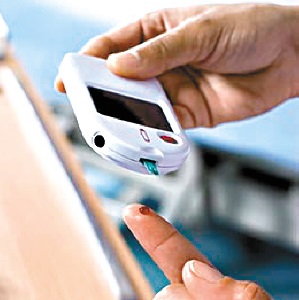With the population aging, the demand for point-of-care testing (POCT) devices will rise, and developers of such devices are noteworthy, an analyst said. POCT refers to medical diagnostic testing at the point of patient care.

“In a nation like Korea where the number of the senior population is surging, the demand for over-the-counter drugs which can prevent diseases and POCT devices will increase,” said Lee Na-ye, an analyst at Korea Investment & Securities.
POCT is different from other tests in that it can shorten the examination time by integrating all the necessary processes – from sampling to the display of the test result – in one device, she said.
Lee recommended investing in PCL, an in-vitro diagnostic product developer.
Established in 2008, PCL sells self-developed diagnostic kits and engages in POCT platform business. The company is developing diagnostic kits in partnership with partners in Europe, Brazil, and China. PCL went public on the KOSDAQ market in February 2017.
According to Lee, PCL’s key technology is SG Cap, which captures proteins using sol-gel in three dimensions. The conventional capturing technology uses a chemical combining method, which affects proteins’ structure or activation.
Using SG Cap can leave the activation intact, without changing the structure of proteins. When an antigen or an antibody for testing is injected, testers can obtain accurate diagnosis results even with a small amount of protein, which makes the accuracy and efficiency of the diagnostic technology superior to conventional ones, Lee said.
On Dec. 7, PCL said in a public disclosure that it won the patent on the selection of nucleic acid aptamers in the U.S. The news brightens the company’s diagnostic platform business, Lee noted.

